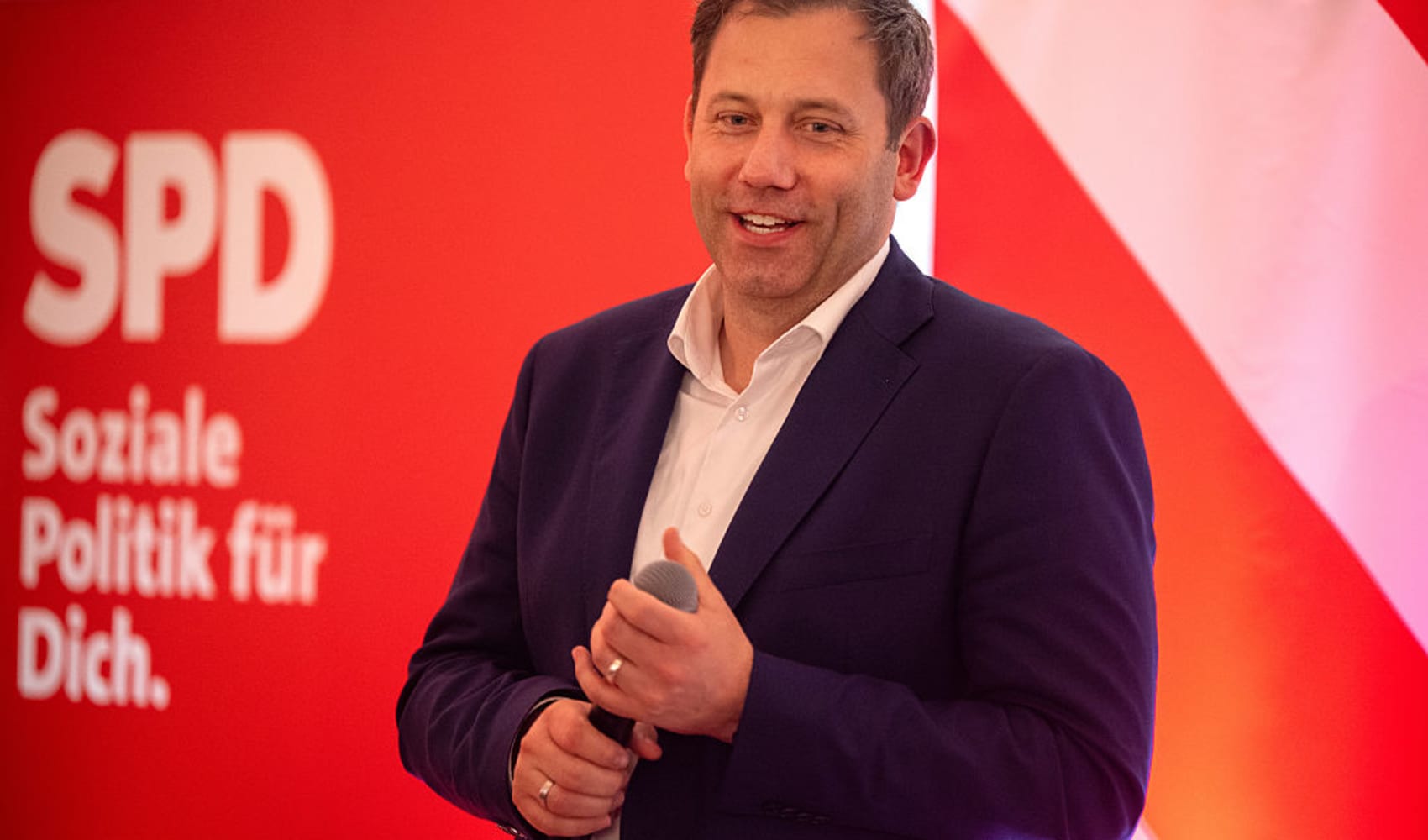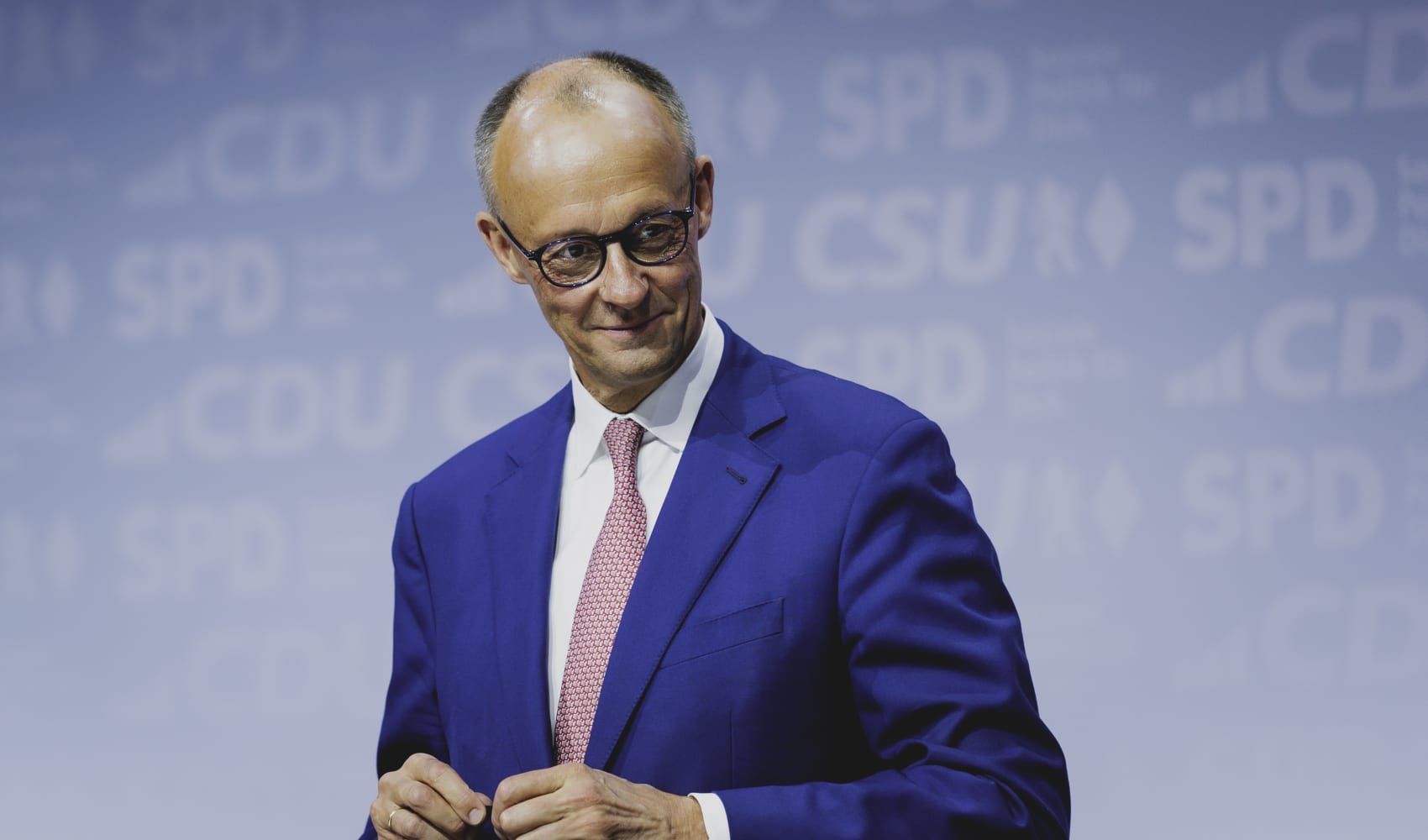Klingbeil Appointed: Germany's New Finance Minister & Vice Chancellor
Power Shift in Berlin: Klingbeil Ascends to Vice Chancellor and Finance Minister
Introduction: A New Chapter for German Finance?
Germany's political landscape is shifting once again, and this time, it's the finance ministry that's feeling the tremors. The Social Democratic Party (SPD) has just announced that Lars Klingbeil is set to take on the dual roles of Vice Chancellor and Finance Minister. That's right, folks, a fresh face at the helm of Germany's economic ship! But is this a seamless transition, or are there choppy waters ahead? Let's dive in and explore the implications of this significant appointment.
Klingbeil's Double Duty: Vice Chancellor and Finance Minister
Imagine juggling two demanding jobs at once. That's precisely what Lars Klingbeil is gearing up for. He's not just stepping into the shoes of the Finance Minister; he's also taking on the responsibilities of Vice Chancellor. This dual role places him in a powerful position within the government, essentially making him a key player in shaping Germany's future direction. It's a testament to the SPD's confidence in his leadership abilities and strategic acumen.
Joerg Kukies Out: A Sudden Shift
The appointment of Klingbeil also signifies a rather abrupt end to Joerg Kukies' tenure as Finance Minister. Kukies only assumed the role in November, making his departure relatively short-lived. This quick change raises a few eyebrows. Was there a disagreement in policy? A strategic realignment within the SPD? While the official reasons remain somewhat opaque, one thing is clear: the finance ministry is now under new management, and fast.
Experience in Fiscal Matters: The Elephant in the Room
Now, let's address the elephant in the room. Klingbeil, while a seasoned politician and a prominent figure within the SPD, doesn't boast an extensive background in finance. Does this lack of direct fiscal experience pose a challenge? Absolutely. Navigating the complexities of international finance, managing national debt, and crafting effective economic policies requires a deep understanding of the fiscal domain. But, experience isn't everything; he has a strong team and can learn quickly.
A Seasoned SPD Veteran: Klingbeil's Political Prowess
Despite the questions surrounding his fiscal expertise, Klingbeil is far from a political novice. At 47, he's a veteran of the SPD, having climbed the ranks and demonstrated his commitment to the party's ideals. He's known for his strategic thinking, his ability to build consensus, and his unwavering dedication to social justice. These are valuable assets that could prove instrumental in his new roles.
The SPD's Rationale: A Vote of Confidence
Why did the SPD choose Klingbeil for these pivotal positions? It's a complex question, but the answer likely lies in a combination of factors. Perhaps they see him as a unifying figure, someone capable of bridging divides within the coalition government. Maybe they believe his strengths in communication and negotiation will be crucial in navigating complex economic challenges. Or, perhaps they simply see him as the right person to champion the SPD's economic agenda.
Challenges Ahead: Navigating Economic Uncertainty
Klingbeil is stepping into his new roles at a time of considerable economic uncertainty. Inflation is rampant, energy prices are soaring, and the global economy is facing a potential slowdown. These are not easy challenges, and they will require bold leadership and innovative solutions. His ability to navigate these turbulent waters will be a key test of his leadership.
The Coalition Government: A Balancing Act
The incoming government is a centrist coalition, which means Klingbeil will need to work effectively with partners from different political backgrounds. This requires compromise, negotiation, and a willingness to find common ground. It's a delicate balancing act, but one that is essential for the stability and success of the government.
Impact on German Economic Policy: What to Expect
So, what can we expect in terms of German economic policy under Klingbeil's leadership? It's difficult to say for certain, but we can glean some clues from the SPD's platform and Klingbeil's own political positions. Expect a focus on social justice, investments in green energy, and policies aimed at reducing inequality. Will he be able to implement these policies effectively? Time will tell.
Focus on Social Justice
Historically, the SPD has always prioritized social justice. Klingbeil's appointment suggests this focus will continue, potentially translating to policies aimed at wealth redistribution and support for vulnerable populations.
Green Energy Investments
Germany's transition to a green economy is a critical priority. Expect Klingbeil to champion investments in renewable energy and sustainable technologies, aiming to create jobs and reduce the country's carbon footprint.
Addressing Inequality
Rising inequality is a concern in many developed nations. Klingbeil is likely to push for policies that address this issue, such as progressive taxation and increased support for education and healthcare.
International Relations: A Global Perspective
As Finance Minister, Klingbeil will also play a key role in international economic relations. He will represent Germany at international forums, negotiate trade agreements, and work with other countries to address global economic challenges. His ability to build strong relationships with his counterparts will be crucial for Germany's economic interests.
The Eurozone: Stability and Reform
The Eurozone faces its own set of challenges, including high levels of debt in some countries and a need for greater economic convergence. Klingbeil will need to work with other European finance ministers to address these issues and ensure the stability of the Eurozone.
The Financial Markets: Confidence and Stability
The financial markets are always watching closely when there is a change in leadership, particularly in a major economy like Germany. Klingbeil will need to reassure investors and maintain confidence in the German economy. A steady hand and clear communication will be essential.
Public Opinion: Winning Hearts and Minds
Ultimately, Klingbeil's success will depend on winning the support of the German public. He will need to communicate his vision clearly, address their concerns, and demonstrate that his policies are working to improve their lives. Public trust is the foundation of any successful political leader.
Future Outlook: A Wait-and-See Approach
So, what does the future hold for Lars Klingbeil and the German economy? It's still early days, and there are many uncertainties. But one thing is clear: Klingbeil is stepping into a challenging role at a critical time. His success will depend on his leadership skills, his ability to build consensus, and his commitment to the well-being of the German people. We'll be watching closely to see how this new chapter unfolds.
Conclusion: A New Era Begins
Lars Klingbeil's ascension to Vice Chancellor and Finance Minister marks a significant shift in Germany's political landscape. While his lack of extensive fiscal experience raises some questions, his seasoned political background and the SPD's confidence in his leadership are undeniable. He'll face considerable challenges navigating economic uncertainties and balancing coalition priorities. The coming months will reveal the impact of this appointment on German economic policy and the country's role in the global economy. Will he rise to the occasion? Only time will tell.
Frequently Asked Questions
- Why was Lars Klingbeil chosen for the Finance Minister position despite not having extensive experience in finance? The SPD likely values his leadership skills, political experience, and ability to build consensus within the coalition government. They may also have confidence in the support he will receive from experienced advisors.
- What are the biggest challenges Klingbeil will face as Finance Minister? He will need to navigate rising inflation, energy price volatility, potential economic slowdown, and manage Germany's budget within the constraints of the coalition agreement.
- How might Klingbeil's policies differ from his predecessor, Joerg Kukies? While it's too early to say definitively, Klingbeil is expected to prioritize social justice and green energy investments more strongly, aligning with core SPD values.
- What impact could Klingbeil's appointment have on the Eurozone? He will play a key role in shaping Germany's position on Eurozone economic policy, potentially influencing efforts to address debt levels and promote economic stability within the region.
- How will Klingbeil balance his responsibilities as both Vice Chancellor and Finance Minister? It will require effective delegation, strong time management, and close collaboration with other members of the government. His success will depend on his ability to prioritize effectively and build a strong support team.


